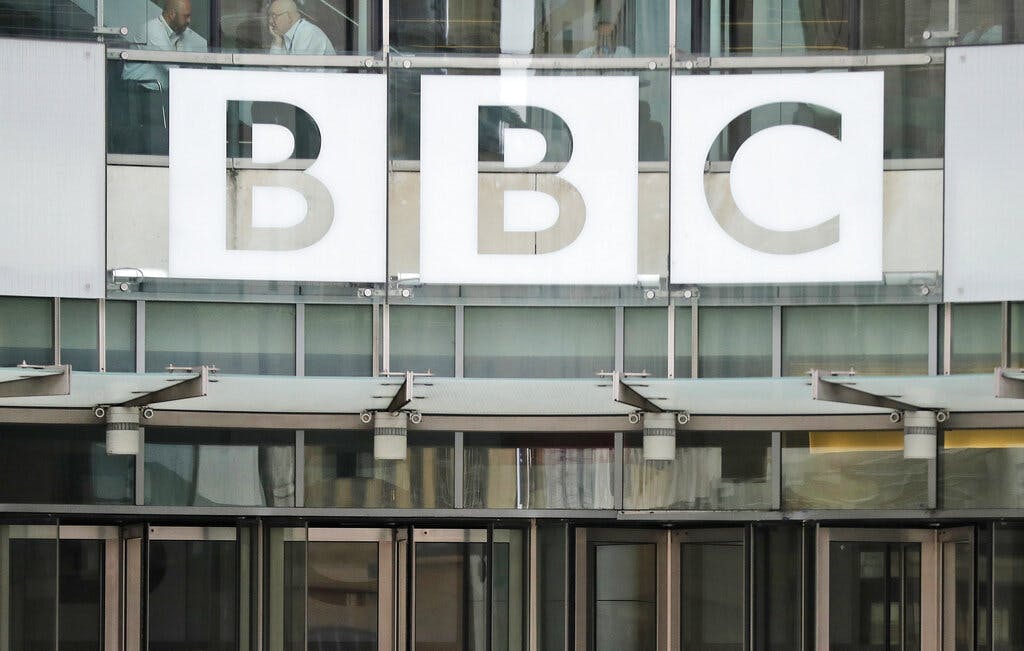Russia Cracks Down on Dissenting Media, Blocks Facebook
The government’s sweeping action against the foreign outlets that publish news in Russian seeks to establish even tighter controls over what information the domestic audience sees about the invasion of Ukraine.

President Putin’s battle to win the war he started in Ukraine will enter new territory this weekend as a bill criminalizing the intentional spreading of what Moscow deems to be “fake” reports is signed into law.
As of Saturday, media outlets and individuals who fail to hew to the Kremlin line on Russia’s war in Ukraine will pay a heavy price.
The intensified media crackdown includes Moscow’s blocking of social media giants Facebook and Twitter, as announced on Friday, and restrictions imposed on traditional media outlets including the BBC, the U.S. government-funded Voice of America and Radio Free Europe/Radio Liberty, German broadcaster Deutsche Welle, and Latvia-based website Meduza.
The state communications watchdog Roskomnadzor said it cut access to Twitter and Facebook in line with a decision by the prosecutor general’s office. The watchdog has previously accused Twitter of failing to delete content banned by Russian authorities and slowed down access to it.
The government’s sweeping action against the foreign outlets that publish news in Russian seeks to establish even tighter controls over what information the domestic audience sees about the invasion of Ukraine. A bill, quickly rubber-stamped by both houses of the Kremlin-controlled parliament and signed by Mr. Putin, authorizes prison sentences of up to 15 years imposed for those spreading information that goes against the Russian government’s narrative on the war.
Some media have reported that forced labor (but for fewer than 15 years) could be another penalty, but this could not be independently confirmed.
Multiple outlets said they would pause their work inside Russia to evaluate the situation. Among them, CNN and CBS News said they would stop broadcasting in Russia while Bloomberg and the BBC said they would temporarily suspend the work of their journalists there.
Russian authorities have repeatedly and falsely decried reports of Russian military setbacks or civilian deaths in Ukraine as “fake” news. State media outlets refer to Russia’s invasion of Ukraine as a “special military operation” rather than a war or an invasion.
The speaker of the lower house of parliament, Vyacheslav Volodin, said the measure “will force those who lied and made statements discrediting our armed forces to bear very grave punishment.”
“I want everyone to understand, and for society to understand, that we are doing this to protect our soldiers and officers, and to protect the truth,” he added.
BBC’s director-general, Tim Davie, said the legislation “appears to criminalize the process of independent journalism.”
“The safety of our staff is paramount and we are not prepared to expose them to the risk of criminal prosecution simply for doing their jobs,” he said.
Mr. Davie said the BBC’s Russian-language news service would continue to operate from outside Russia.
Some well-known media outlets within Russia have chosen to close rather than face heavy restrictions on what they can report. News website Znak said it was closing Friday morning, shortly after the parliament approved the draft bill. On Thursday, Russia’s top independent radio station, Ekho Moskvy, was closed and independent TV station Dozdh suspended operations after receiving a threat of closure from the authorities.
